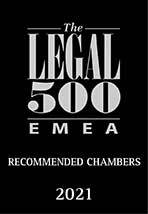The beauty of a contract is the liberty contracting parties enjoy in deciding the terms that bind them. This basic principle extends to our revered courts, who are bound to interpret contracts to give effect to the parties’ agreement. As such, courts should not rewrite the terms of an agreement willingly entered into by parties. Even though parties are at liberty to contract on terms acceptable to them, restrictive covenants in employment contracts must be fair, reasonable, and comply with the provisions of the law.
What are Restrictive Covenants?
A restrictive covenant prevents a party from doing an act during or after the termination of a contract. With respect to employment contracts, it restricts a party’s liberty to exercise his trade, business or profession in the manner stated in the contract.
The most common examples are non-solicitation and non-compete clauses etc.
In employment contracts, non-solicitation clauses would typically prohibit an employee from approaching, poaching, or doing business with the employer’s customers/clients during the term of his/ her employment or for a period after the contract of employment is terminated.
Non-compete clauses on the other hand restrict an employee from engaging in a similar business or working for a competitor during the period of employment or for a period after the contract of employment is terminated.
How can Restrictive Covenants in Employment Contracts be Enforced?
There are various rules governing the inclusion of clauses of this nature in a contract of employment. One of such rules is the principle of reasonability and public policy – that is, is the restraint reasonable from the point of view of the contracting parties and the public? What typically happens is that covenants of this nature are generally unenforceable. This is because Nigerian law frowns at the limitation of competition in any trade.? This however begs the question as to whether an employer should be left without any protection of its trade secrets or the risk an exited employee poses? The answer is in the negative. Under Nigerian law, there are instances where a covenant in restraint of trade will be enforceable. We will attempt to assess the position of the law where restrictive covenants can be said to be reasonable and justifiable in line with public policy.
It is imperative to point out that in Nigeria, the law has evolved from deciding the enforceability of restrictive covenants based on the circumstances of each case alone. Section 68(1)(e) of the Federal Competition and Consumer Protection Act (the “FCCPA”) sets out what will qualify as an enforceable covenant in restraint of a trade. The FFCPA essentially makes these restrictions applicable to only employees and independent contractors, but not companies. In addition, it gives a two (2) year time limit to the restrictions and makes it mandatory for the employee/contractor to accept the restriction. The provision of the statute will be considered alongside the peculiarities of each case.
Let us consider a hypothetical scenario where XYZ Limited, a Nigerian payment processing company with proprietary trade secrets hires Caramel Beauty as a software developer. In a bid to protect itself from: (a) losing its trade secrets due to the nature of Caramel’s role within the company and contact with its clients; (b) having Caramel poach other employees after leaving the Company; or (c) Caramel working for a competitor, XYZ Limited decides to include a non-solicitation and a non-compete clause during Caramel’s employment with the Company and for five (5) years after her employment terminates.
Two (2) years after Caramel resigns from her employment with XYZ Limited, Caramel Beauty joins a start-up in Ghana called “Shining Star Ltd”, which is also in the business of processing payments.
As part of Caramel’s job description with Shining Star Ltd, she is required to build her team and increase the company’s clientele. Caramel then proceeds to contact her former colleagues at XYZ Limited to work for Shining Star Ltd, as well as pitching Shining Star Ltd to XYZ Limited’s customers.
Of course, XYZ Limited has experienced a worrisome attrition of its employees and clientele. It has also reliably been informed that Caramel has been poaching her former colleagues and has moved some of XYZ Limited’s clients’ to Shining Star Limited.
XYZ Limited now intends to enforce the restrictive covenants in its contract with Caramel Beauty.
By poaching XYZ Limited’s employees, clients and even working for Shining Star Limited, Caramel Beauty seems to have breached the non-solicitation and non-compete clauses in her contract with her former employer.
In determining whether the restraint clause in Caramel and XYZ Limited’s contract is enforceable, it is important to bear in mind the provision of the FCCPA and whether the same is reasonable. There are also factors to consider in determining reasonability of a restrictive clause in an employment contract. These are the geographic location of the competitor, the period of the restraint and the nature of the business.
Caramel Beauty having joined Shining Star Limited two (2) years after resigning from XYZ Limited may not be held liable for any breach. Moreso, given that the two companies carry on businesses in different jurisdictions, it will be unreasonable to expect Caramel to refuse to accept any job offers because she is restrained by a non-compete clause from her former employer. This will also be a major point of consideration for the court. However, where Caramel Beauty uses the trade secrets she acquired while dealing directly with XYZ Limited’s customers, then she may be restrained from doing so, in favour of a similar company.
A few pointers to consider in including a restrictive clause in a contract of employment include:
- limiting the covenant to a similar industry with its business, and territory; compliance with the applicable duration stipulated in section 68(1)(e) of the FCCPA; and
- if the restraint is reasonable from the viewpoint of both parties and the public.
Conclusion
The idea behind documenting a contract is to easily identify parties’ intention(s), obligations and to ensure that their rights, duties, and obligations can be enforced. It is clear that no party wants to include an invalid/unenforceable term in a contract while under the impression that his interest is adequately catered for.
It is therefore imperative for contracting parties who intend to include enforceable restrictive covenants in their employment contract to ensure such covenants are reasonable and justifiable to the parties and the public and limited to two (2) years after the termination of the employment contract.
Consequently, it is critical for employers intending to include restraint provisions in an employment contract to consult a lawyer.












